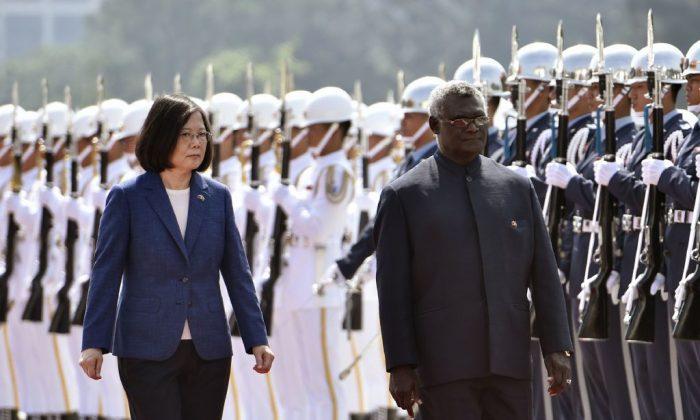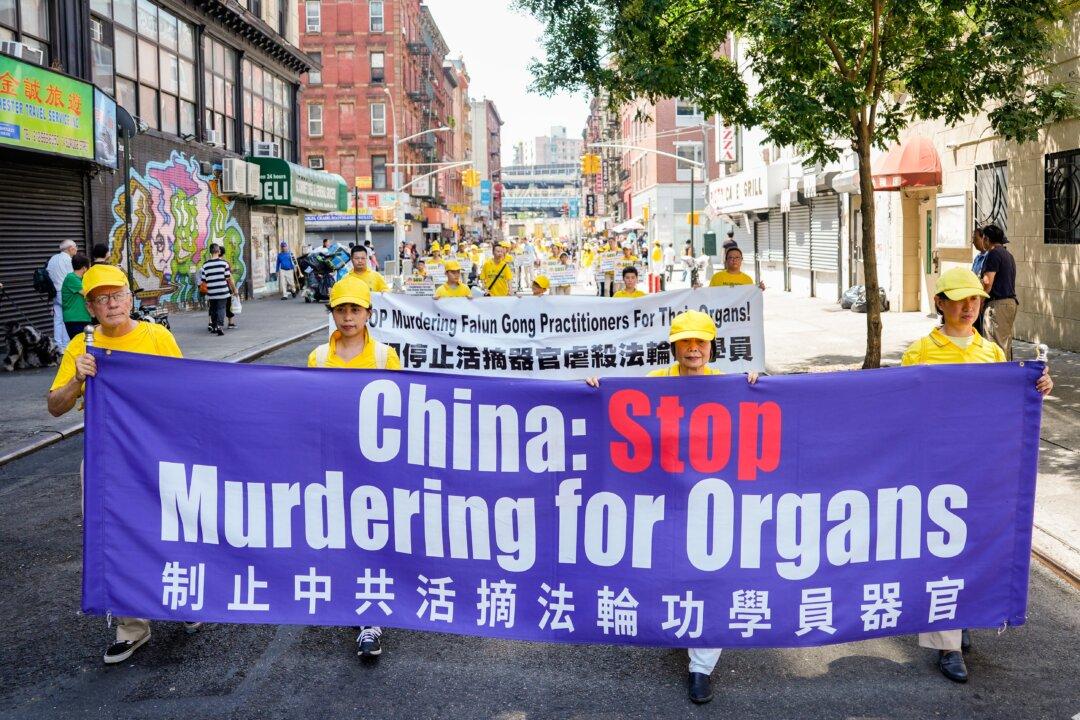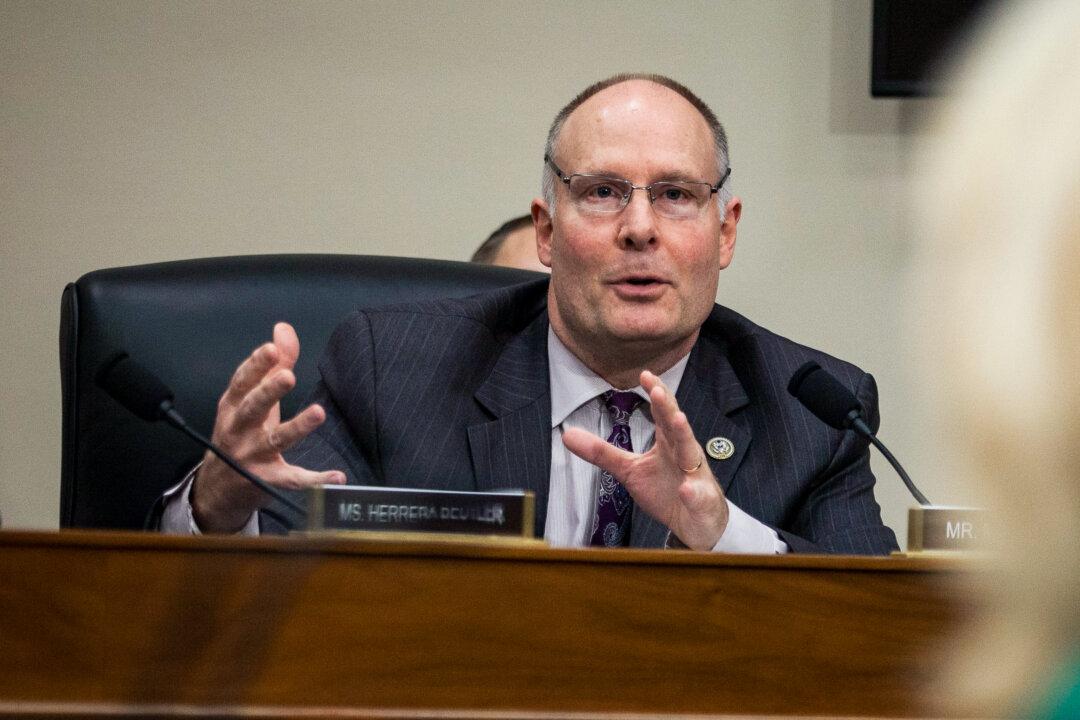After the Solomon Islands earlier in the week decided to ditch its decades-long diplomatic relationship with democratic Taiwan in favor of the Chinese Communist regime, U.S. officials have criticized the move, calling out Beijing for its coercion tactics.
Meanwhile, the decision has highlighted the Chinese regime’s ambitions in the Indo-Pacific region.
US Reaction
“China’s active campaign to alter the cross-Strait status quo, including by enticing countries to discontinue diplomatic ties with Taiwan, is harmful and undermine regional stability,” a U.S. State Department spokesperson said in an email response to The Epoch Times.The spokesperson further expressed “disappointment” in both the Solomon Islands and Beijing—the former for abandoning its diplomatic ties with Taiwan, and the latter for its “continued campaign to shrink Taiwan’s international space.”
David Stilwell, assistant secretary of state for East Asian and Pacific affairs, called the switch “unfortunate” during a hearing before the U.S. Senate foreign affairs committee on Sept. 18.
Beijing considers the self-ruled island of Taiwan, officially known as the Republic of China, as part of its territory, despite it being a de facto democratic country with its own elected officials, constitution, and currency. The Chinese regime has consistently threatened the use of military force to bring Taiwan under its reign.
Beijing has also pressured other countries to embrace its interpretation that mainland China is the only China.
Since 2016, Taiwan has lost six allies: El Salvador, Burkina Faso, the Dominican Republic, Panama, São Tomé and Príncipe, and now, the Solomon Islands.
The Taiwanese government has accused Beijing of deploying “dollar diplomacy”: providing investments and loans to Taiwan’s allies so that they drop their ties.
Though formal diplomatic relations between Taiwan and Washington were severed after the latter switched diplomatic recognition to Beijing in 1979, Taiwan remains a key U.S. ally in the Indo-Pacific region. Washington is also the chief supplier of arms for Taiwan’s self-defense.
The State Department in its email response reiterated the importance of Taiwan-U.S. relations. “Taiwan is a democratic success story, a reliable partner, and a force for good in the world. The United States will continue to support Taiwan, especially as it seeks to expand its already significant contributions to addressing global challenges,” the spokesperson said.
At least eight U.S. lawmakers also publicly voiced their concerns about the diplomatic breakup.
China’s Ambitions
Experts and the U.S. administration have long expressed concerns about China’s growing ambitions in the region.The report warned that China “seeks Indo-Pacific regional hegemony in the near-term and displacement of the United States to achieve global preeminence in the future.”
Many Pacific nations are now heavily indebted to China after obtaining high-interest Chinese loans to build up their infrastructure.
China currently accounts for nearly half of Vanuatu’s $440 million foreign debt, according to The Sydney Morning Herald.
In the South Pacific archipelago Tonga, the country owes about $108 million to the state-owned Export-Import Bank of China, about 25 percent of the country’s GDP.
Local Opposition
The diplomatic breakup has not been fully welcomed by locals.In Auki, the capital of Solomon Islands’ Malaita Province, residents took to the streets in a peaceful protest against the decision on Sept. 17.
Eddie, a 29-year-old bus driver in Auki, said: “Government must come out clear and tell us why they decide to switch. We know money is involved and so we must speak up.”
Another protester, Max Bobby, said he was worried about unemployment, as the Taiwan government has announced the closure of its embassy and health centers there.
“If we are not careful, then these beautiful Solomon islands will no longer own [sic] by you and me, but the Chinese,” he wrote.
“The choice between staying with democracy or switching to communism involves matters directly linked to our people and so the public’s view should never be ignored,” Wale added.






Friends Read Free